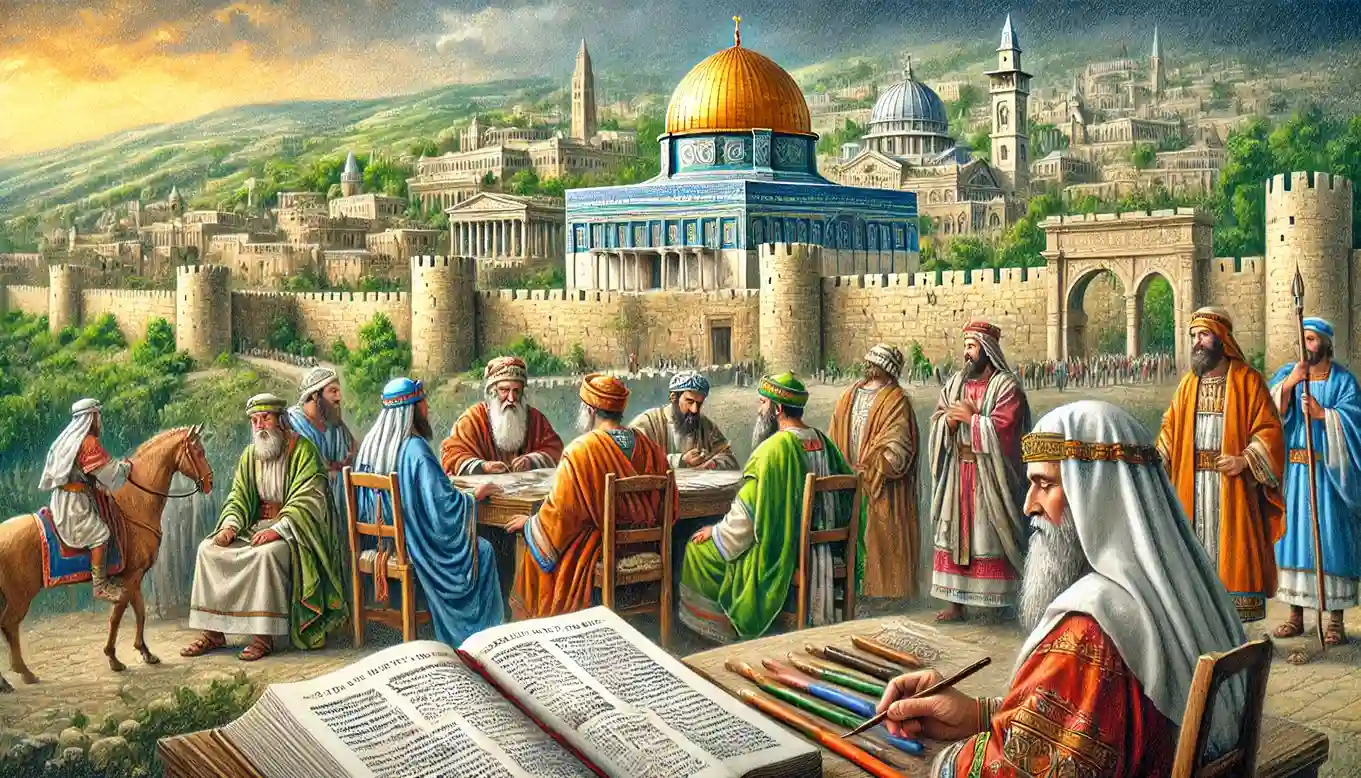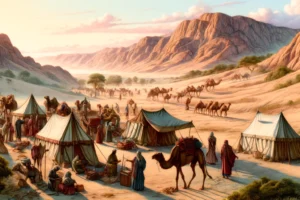
The Southern Kingdom of Judah: Faithfulness and Fall
The Southern Kingdom of Judah, also known simply as Judah, was the kingdom that emerged following the division of the united monarchy of Israel. Here are some key facts about Judah:
- Formation: The kingdom was formed around 930 BC after the split of the united monarchy under Solomon’s son, Rehoboam (1 Kings 12:16-20).
- Capital: Jerusalem served as the capital city and the spiritual center of Judah.
- Tribes: Judah primarily consisted of the tribes of Judah and Benjamin (1 Kings 12:21).
- Kings: The kingdom was ruled by the descendants of David, starting with Rehoboam and including notable kings such as Asa, Jehoshaphat, Hezekiah, and Josiah.
- Prophets: Prophets such as Isaiah, Jeremiah, and Micah ministered in Judah, providing guidance, warnings, and prophecies concerning the nation’s future.
- Fall: Judah was conquered by the Babylonian Empire in 586 BC, leading to the destruction of Jerusalem and the Temple, and the Babylonian exile (2 Kings 25:8-21).
The Southern Kingdom of Judah, established after the division of the united monarchy of Israel, holds a significant place in biblical history. Its narrative is marked by a series of faithful and unfaithful rulers, prophetic ministries, religious reforms, and eventual downfall and exile. Here, we explore the kingdom’s formation, governance, spiritual dynamics, and ultimate fate.
Formation and Early History: The kingdom of Judah was formed around 930 BC following the split of the united monarchy under Solomon’s son, Rehoboam. When Rehoboam refused to reduce the heavy taxation and forced labor policies of his father, the northern tribes rebelled, forming the Kingdom of Israel under Jeroboam. Judah, consisting mainly of the tribes of Judah and Benjamin, remained loyal to Rehoboam and continued the Davidic line in Jerusalem, the capital city and spiritual center.
Davidic Dynasty and Governance: Judah was ruled by the descendants of David, beginning with Rehoboam. The continuity of the Davidic line was central to Judah’s identity, fulfilling God’s covenant promise to David that his descendants would always sit on the throne (2 Samuel 7:16). The kingdom experienced fluctuating fortunes under different kings, with some leading Judah in faithfulness to God and others leading it into idolatry.
Religious Reforms and Decline: Judah’s history saw significant religious reforms, especially under kings who sought to return the nation to the worship of Yahweh:
- Asa: Asa initiated reforms by removing idols and restoring the altar of the Lord (1 Kings 15:11-15). His reign was marked by religious renewal and military success.
- Jehoshaphat: He continued his father’s reforms, sending out officials to teach the Book of the Law throughout Judah (2 Chronicles 17:7-9).
- Hezekiah: One of Judah’s most notable reformers, Hezekiah cleansed the Temple, reestablished proper worship, and celebrated Passover (2 Chronicles 29-31). His reign included the miraculous deliverance of Jerusalem from the Assyrian siege (2 Kings 19:35-37).
- Josiah: Josiah’s reforms were profound. He rediscovered the Book of the Law during Temple repairs and led a national repentance (2 Kings 22-23). He removed idolatrous practices and restored the covenant relationship with God.
Despite these periods of reform, Judah also experienced significant spiritual decline. Kings like Manasseh and Amon led Judah into deep idolatry and pagan practices, provoking God’s anger (2 Kings 21:1-9). Manasseh’s reign, in particular, was marked by the introduction of altars to foreign gods even within the Temple.
Prophetic Ministry: Judah was home to several major prophets who played crucial roles in guiding and warning the nation:
- Isaiah: Ministering during the reigns of Uzziah, Jotham, Ahaz, and Hezekiah, Isaiah’s prophecies included messages of judgment and hope, and he foretold the coming of the Messiah (Isaiah 7:14, 9:6).
- Jeremiah: Known as the “weeping prophet,” Jeremiah ministered during the final years of Judah, warning of the impending Babylonian exile due to Judah’s persistent unfaithfulness. He faced severe persecution for his prophecies but remained steadfast (Jeremiah 7:1-15, 20:1-2).
- Micah: Contemporary to Isaiah, Micah called for justice and true worship, famously declaring, “What does the Lord require of you? To act justly and to love mercy and to walk humbly with your God” (Micah 6:8).
Fall and Exile: Judah’s persistent rebellion against God culminated in its conquest by Babylon. In 586 BC, Nebuchadnezzar II besieged Jerusalem, destroyed the Temple, and carried the people into exile. This catastrophic event marked the end of the Davidic monarchy on the throne of Jerusalem and began the Babylonian exile, a period of profound crisis and reflection for the Jewish people (2 Kings 25:8-21).
Legacy and Theological Significance: Judah’s history is rich with theological significance. The Davidic covenant, the prophetic messages, and the cycles of apostasy and reform all point to deeper spiritual truths. Judah’s story underscores the importance of covenant faithfulness, the consequences of idolatry, and the hope of redemption. The prophetic promises of a future restoration and a coming Messiah provided hope during the dark days of exile and beyond.
In conclusion, the Southern Kingdom of Judah serves as a crucial chapter in biblical history, illustrating the complexities of human faithfulness and divine sovereignty. The lessons from Judah continue to resonate, emphasizing the need for obedience, repentance, and reliance on God’s promises amidst trials and tribulations.



